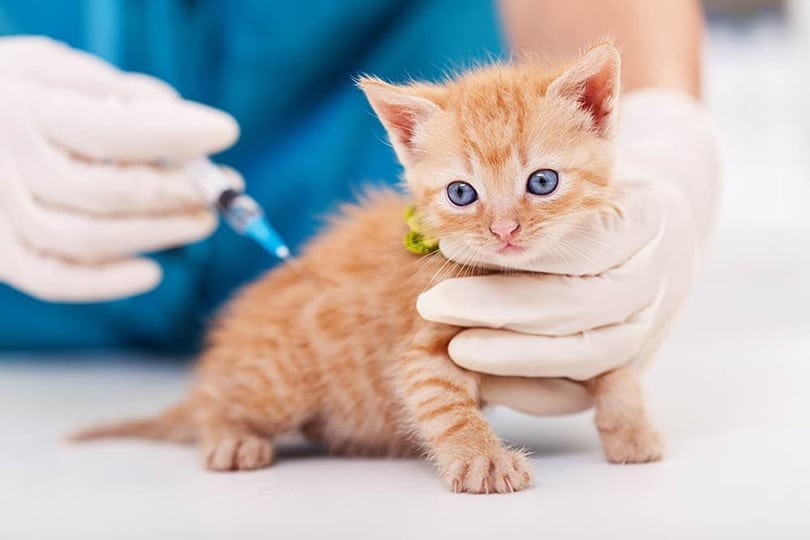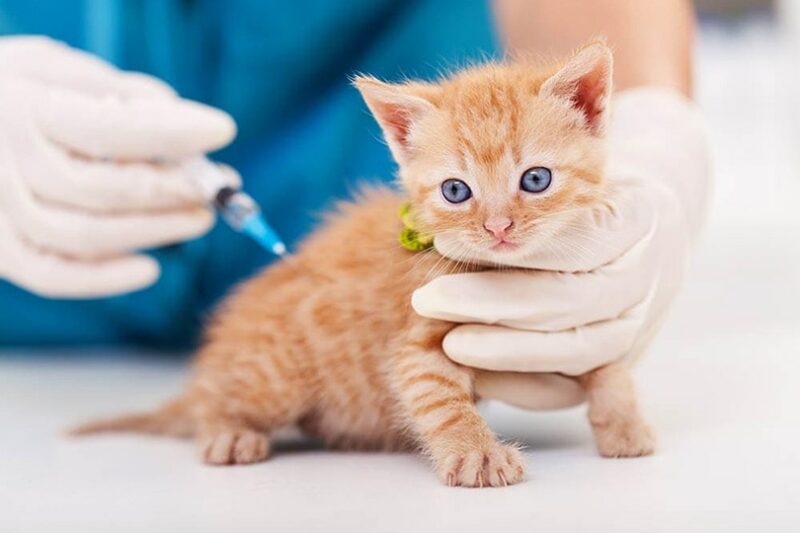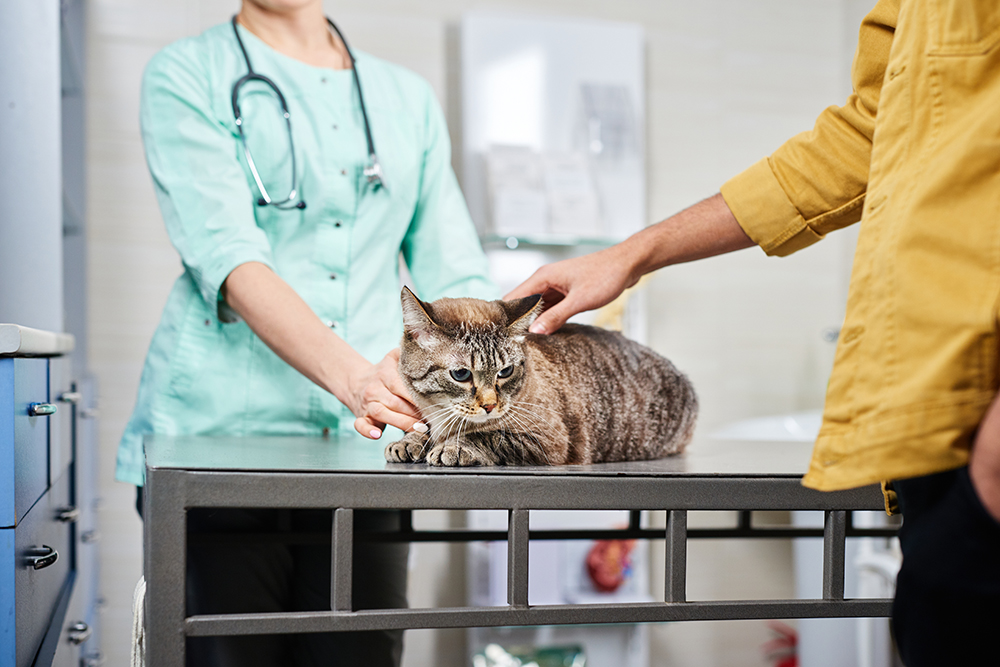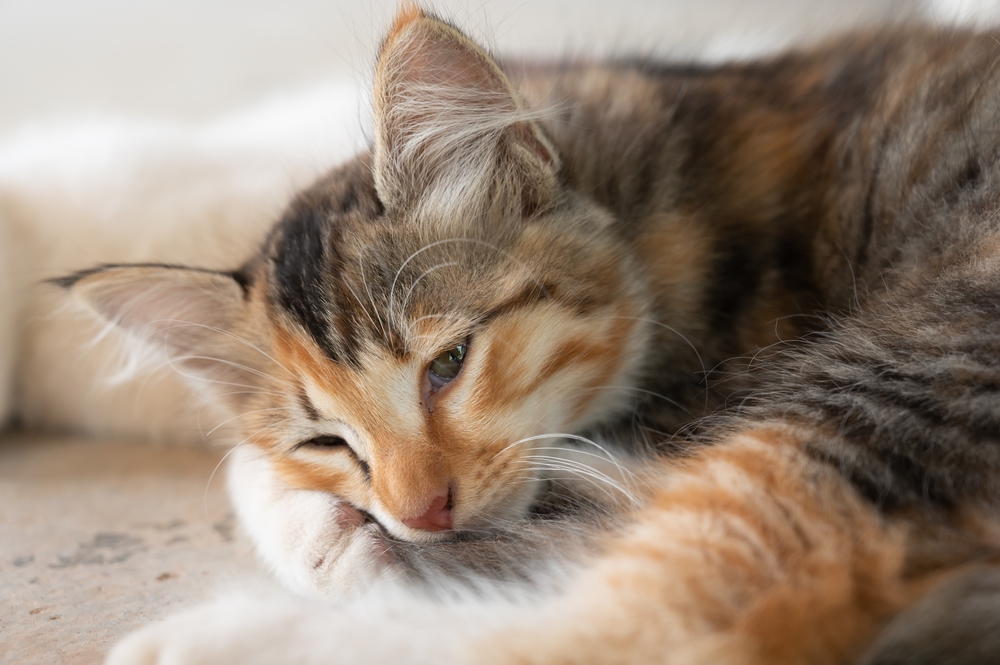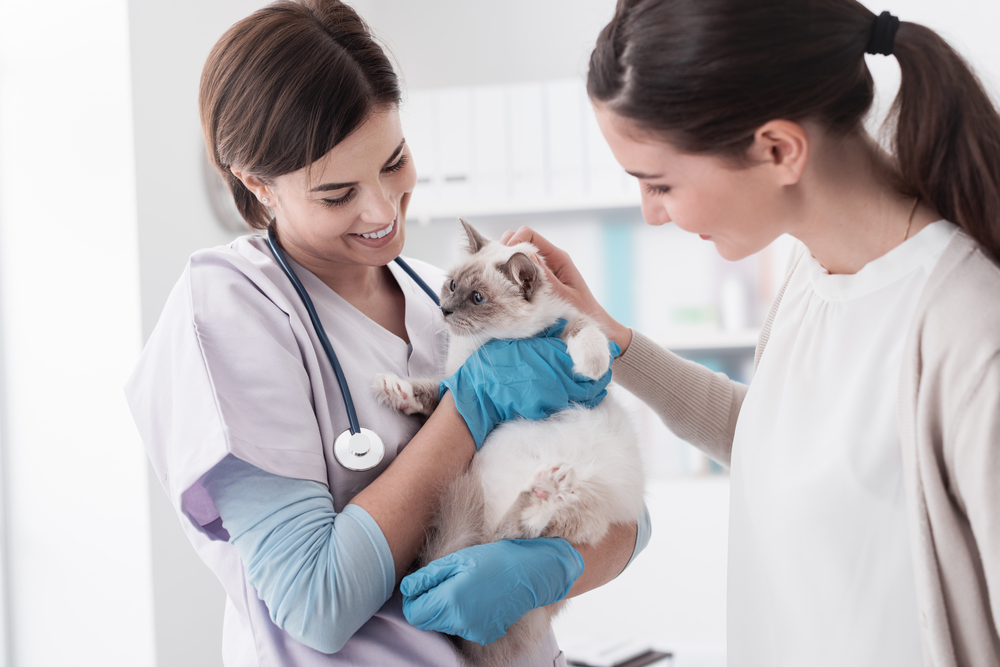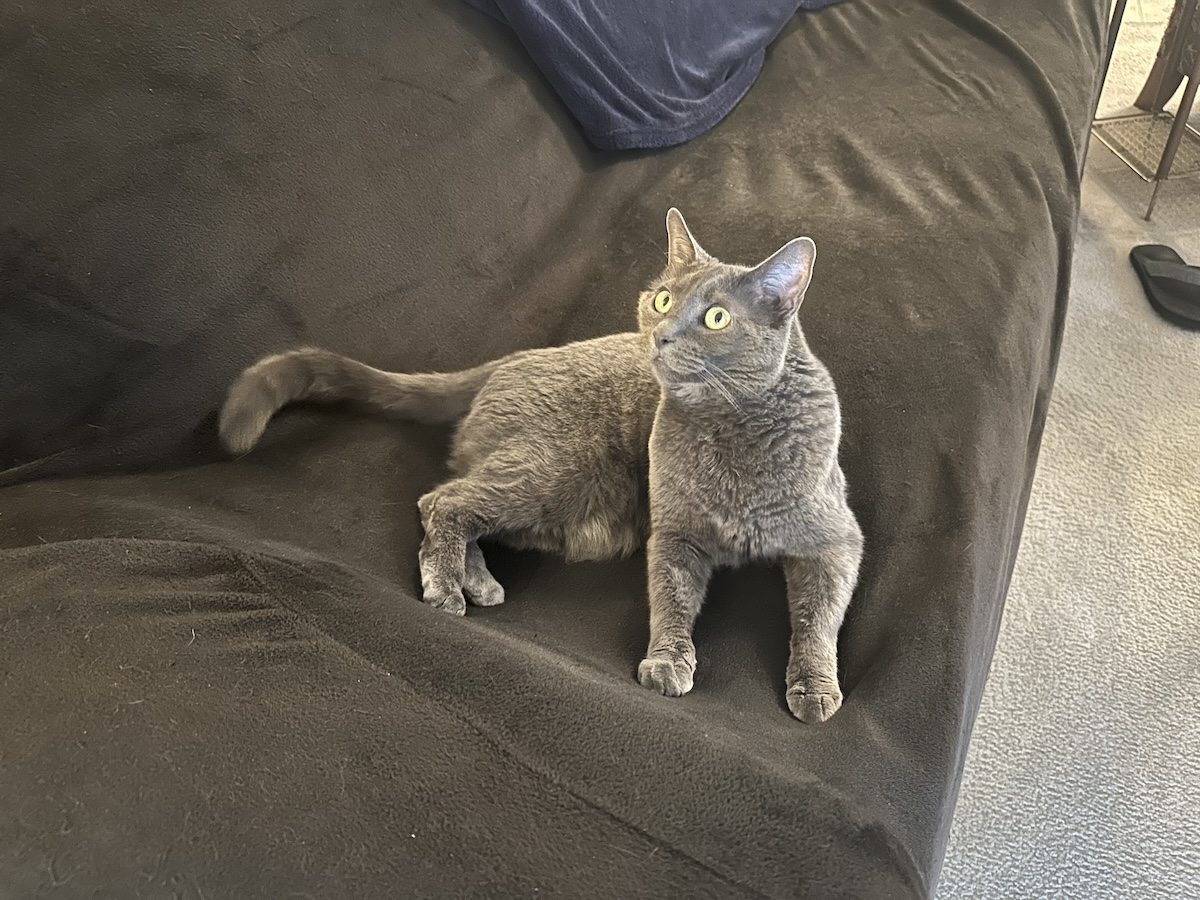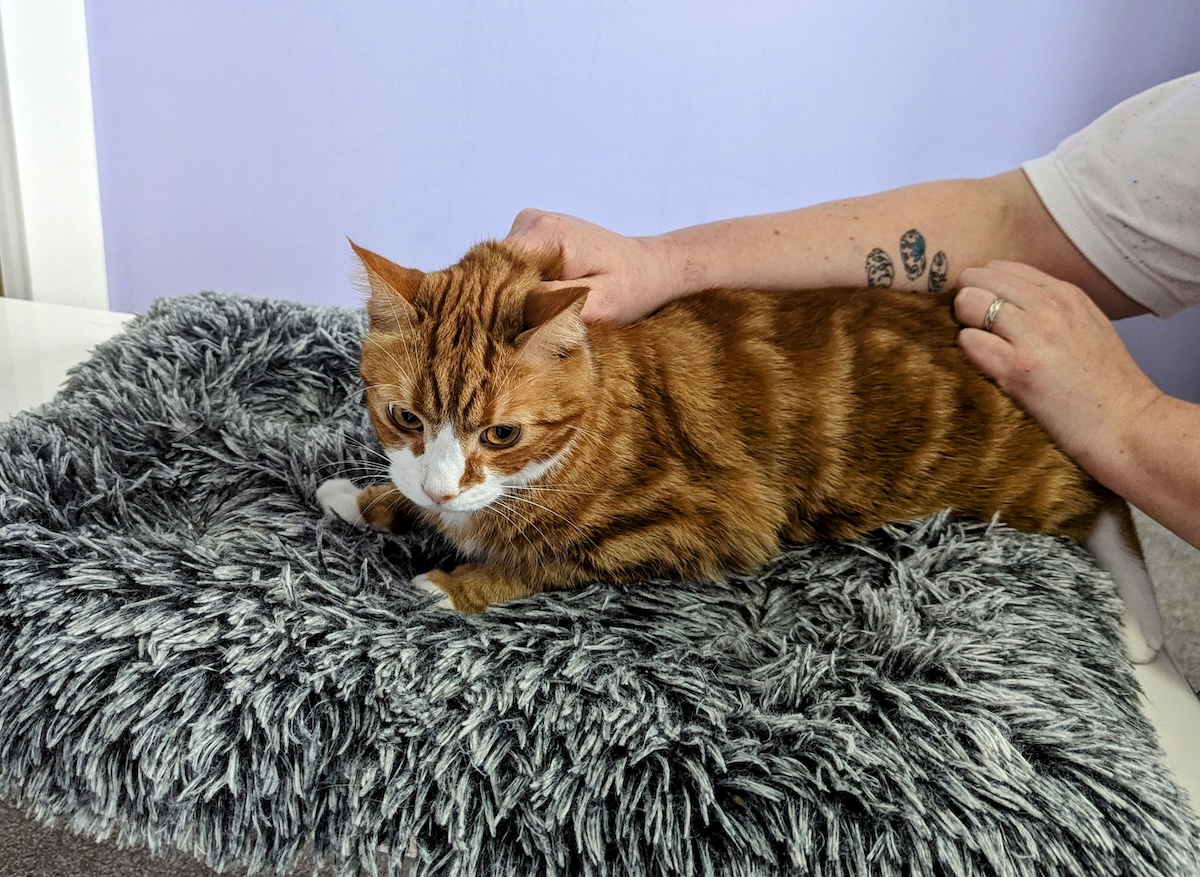Click to Skip Ahead
One of the best ways to keep a cat healthy is to ensure that they get the medical care they need. This means that in addition to a yearly or twice-yearly physical exam with their vet, they need to have their vaccine needs assessed on an annual basis as well.
Vaccines can consist of core and non-core vaccines, depending on a cat’s lifestyle (i.e., indoor vs. outdoor, how often they might board in a cattery, etc.), age, and other risk factors. Core vaccines are designed to protect against infectious diseases that are either life-threatening or commonly encountered by the majority of cats. They include feline parvovirus (also called feline distemper), feline calicivirus (also called rhinotracheitis), feline herpes, feline leukemia virus, and potentially rabies, depending on where the cat lives.
Vaccines are designed to protect either sterile or partial immunity against these diseases so cats don’t develop severe illnesses as a result of being exposed to these viruses. The timing of vaccines can be a bit complicated, as so much depends on an individual cat. The primary series of vaccines for kittens is probably the most straightforward, with vaccines given every 3–4 weeks until they reach a certain age. For adults, vaccines are given every 1–3 years, depending on what the vaccine is, and what type of lifestyle the adult cat is living.
Read on to learn more about how vaccine schedules and timing are determined in cats, so you know what to expect.

How Do Vaccines Work?
To understand how vaccine schedules in cats are timed, you first need to understand how vaccines work, and what are core vaccines versus non-core vaccines.
Some vaccines contain inactive DNA or RNA from a pathogen, such as a virus or bacteria; these are called “killed” vaccines. Some vaccines contain less pathogenic forms of the normal virus or bacteria; these are called “modified live” vaccines. Some vaccines contain only a small part of a virus or bacteria inserted into an organism called a plasmid that acts to amplify this portion of the virus or bacteria. Once an animal is vaccinated, these are called “vectored” or “recombinant” vaccines.
Modified live and killed vaccines are some of the original and more traditional vaccines, whereas vectored vaccines are a more recent scientific development. Each has possible pros and cons.
After receiving a vaccine, the body recognizes the foreign material contained in the vaccine and produces an immune response. This response takes about 7–14 days to reach a peak response. In part, this is why vaccines are timed 3–4 weeks apart—to allow for this response, and then a settling of the immune system before challenging it again with another vaccine.
Some vaccines made to fight infectious diseases that cats do not commonly encounter, such as rabies, are considered effective after a single dose. Vaccines made to fight diseases that cats do routinely come across, or that are made to fight antibodies that cats may have received from their mother, generally require a minimum of two doses (sometimes more), depending on the cat’s age.
How Does a Primary Vaccine Course Work? How Often Do Kittens Need Vaccines?
Kittens receive their first vaccines in what is called a “primary vaccine course.” This involves vaccines that generally start around 8 weeks of age and continue every 3–4 weeks until they are 16 weeks of age or older.
The reason for this is that, at around 16 weeks of age, any antibodies that their mother (queen) had for various pathogens will generally drop to levels low enough to not interfere with the vaccines. Otherwise, cat vaccines given prior to this time may be ineffective if they have antibodies from their mom, that respond before their own immune system can create their own antibodies.
This means most kittens get a first vaccine, and then one to two boosters after until they are 16 weeks of age or older. After 16 weeks of age, most kittens then need their next vaccine 1 year later.
- 8 weeks
- 12 weeks
- 16 weeks
Primary vaccines in kittens include their core vaccines, feline leukemia, and potentially rabies, depending on where they live and their lifestyle risk factors. Rabies vaccines cannot be given to kittens until they are at least 12 weeks old.
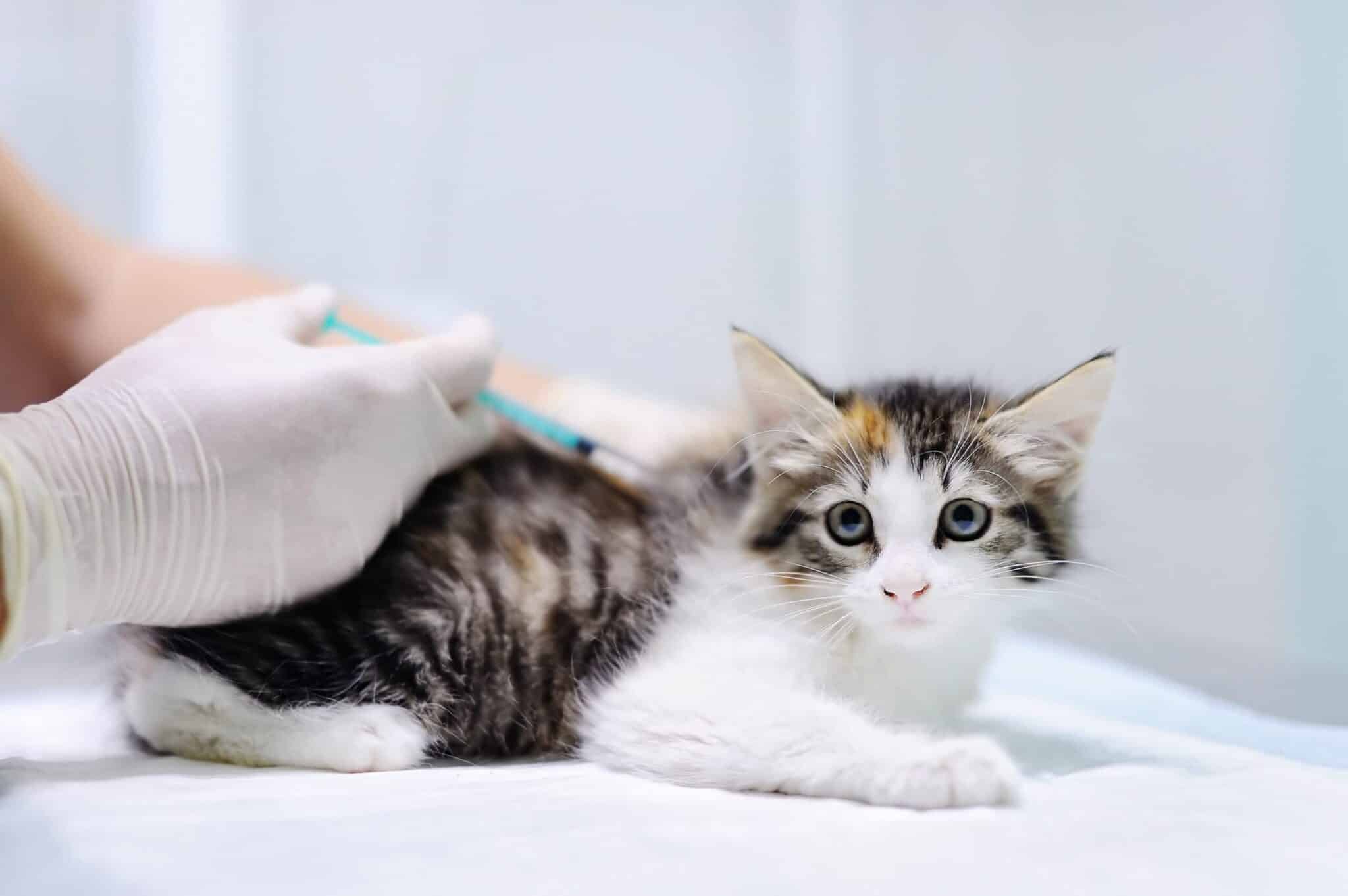
What Is the Schedule for Adult Cat Vaccines?
Adult cats fall into two categories for how their vaccines are scheduled.
Adult cats that have never been vaccinated or don’t have a known history of vaccines (e.g., found outside as an adult stray) generally get a primary vaccine, and then a single booster 3–4 weeks later. The reason for this booster is that a single vaccine for herpes, calicivirus, and panleukopenia may not be fully effective. So, a second vaccine provides a bit more protection. Rabies, on the other hand, produces good results after a single vaccine, so a primary vaccine is considered sufficient.
Adult cats that received their primary course as kittens generally receive boosters either annually or triennially, depending on the vaccine, how much time they spend outside or boarding with other cats, and their age.
Are There Instances Where a Cat Vaccine Schedule Might Change?
There are certain instances where a cat may go in for vaccines, but may be deemed not healthy enough to receive one. Alternately, it might be too early for them to receive a vaccine just yet. A veterinarian might choose to delay vaccination of a cat for the following reasons:
- Weight loss
- Not eating
- Urinary tract infection
- Upper respiratory infection
- Vomiting
- Diarrhea
- Too soon from last vaccine
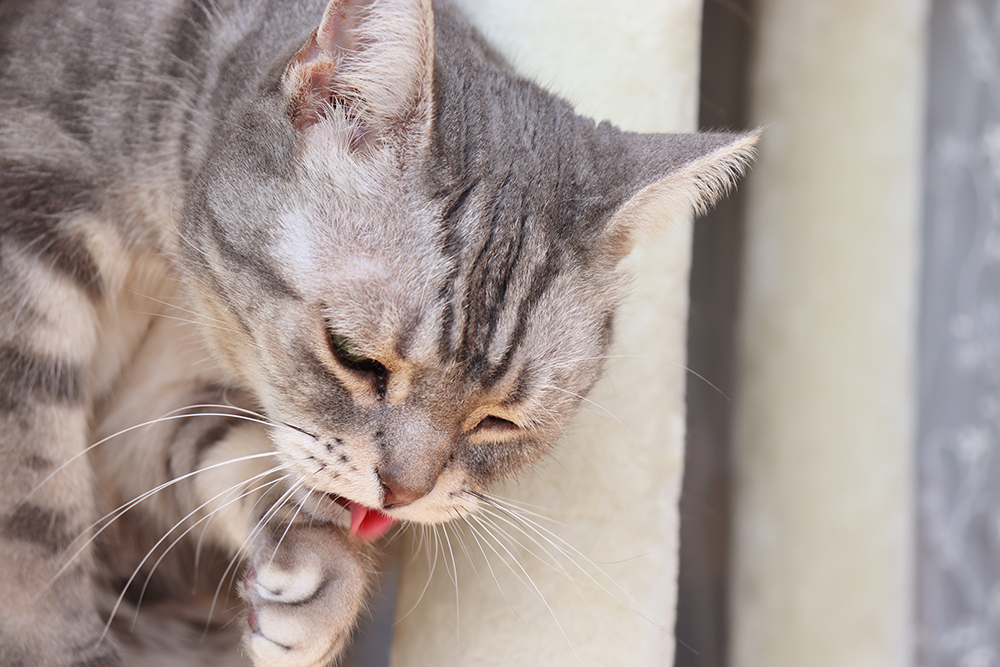

Frequently Asked Questions
What Are Possible Vaccine Side Effects?
Vaccines, as with any medication, can have potential side effects. One of the more well-known side effects, particularly in cats, is called a vaccine-associated fibrosarcoma.
Fibrosarcomas are cancer that forms from the cells that form the connective tissue layer under the skin. There is strong evidence to suggest that a combination of genetics, and certain vaccines and vaccine adjuvants, can lead to the formation of these cancers in cats. Many of these vaccines are now made in a different manner, so as not to contain adjuvants, and most vaccines in cats are also now given in specific locations of the body so that if one of these cancers occurs, it can be known which vaccine may have played a role.
The most common side effect for vaccines in cats tends to be lethargy, followed by vomiting, or diarrhea. Cats rarely develop anaphylaxis, facial swelling, or hives—as seen in many other species. If your cat does experience any sort of reaction to a vaccine, report it to your vet, as this may change how they are vaccinated in the future.
How Are Vaccines Given?
Most vaccines for cats are injections given under the skin. Vaccines are generally about 1 milliliter in volume. There are other forms of vaccines that include nasal drops, as well as transdermal vaccines, but these are uncommonly encountered.
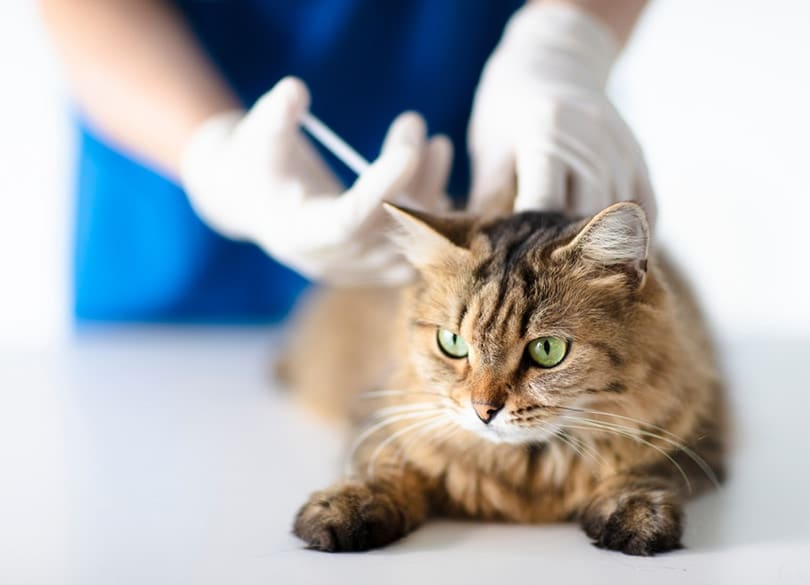
My Cat Is Late for Their Vaccine. Does That Change the Schedule?
The answer is: it depends. If your cat is less than a week late for an annual booster, it is generally not a problem. If your cat is more than a week or two late for their primary course booster, it might mean they will need an additional booster vaccine.
I Feed Stray Cats. Do They Need Vaccines?
Ideally, yes. You can contact local cat rescue groups as if you are helping to care for a colony, and they may assist you in finding a way to vaccinate these cats.
Is My Cat Too Old for Vaccines?
In general, veterinarians no longer consider cats “too old” for most things, and for many reasons! There are many healthy, happy 20-year-old cats that come in for veterinary care that would definitely not be happy to hear they are too old. Sometimes, senior cats need the immunity provided by vaccines far more than adult cats. Discuss with your vet what risk factors exist for your senior cats, such as time spent outside, boarding around other cats and dogs, and any medical conditions your cat may have, to determine what vaccines he or she needs, and how often.

Conclusion
Vaccination in cats is an important part of preventing serious illness and keeping our furry friends healthy. Vaccines are part of a lifelong health plan for your cat, not just something done when they are kittens.
Related Reads:
- What’s the Price of Cat Vaccinations?
- Rabies Vaccines for Cats: A Complete Guide (Vet Answer)
- Feline Leukemia (FeLV) Vaccines for Cats: A Complete Guide (Vet Answer)
Featured Image Credit: Ilike, Shutterstock

